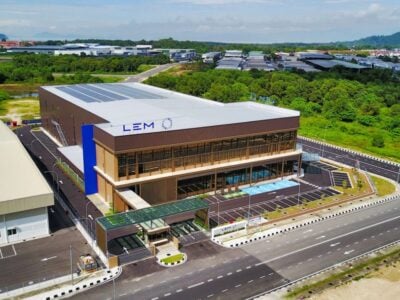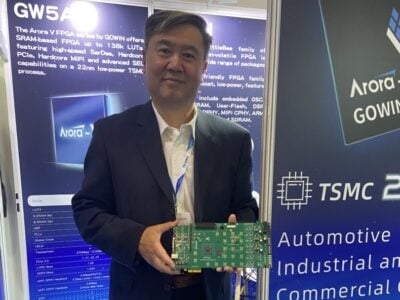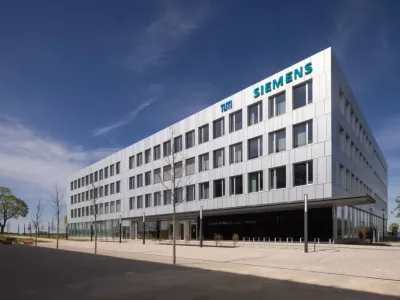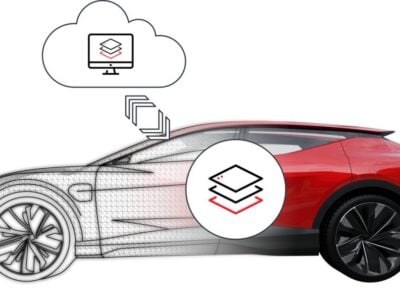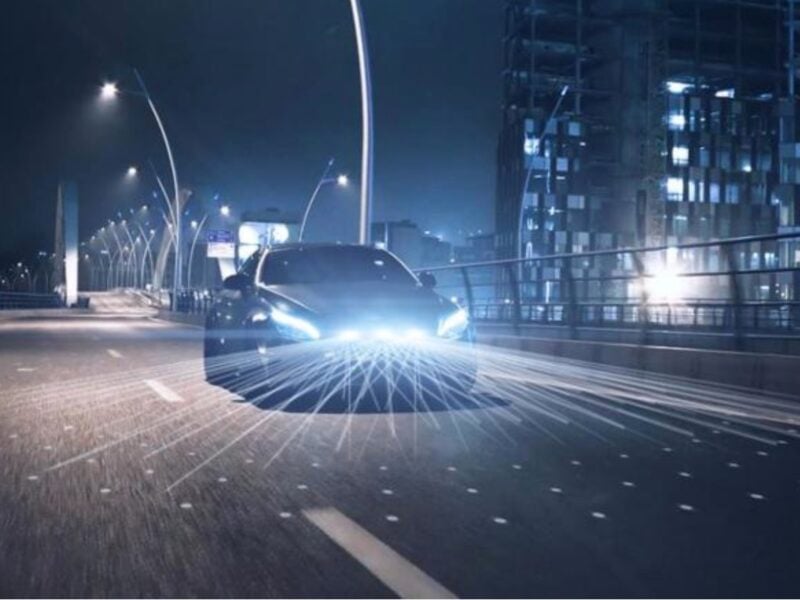
Veoneer includes solid-state lidar in its autonomous driving toolbox
The Swedish automotive electronics provider will deploy the innovative solid-state lidar technology from US technology startup Baraja in the next generation Advanced Driver Assistant Systems (ADAS), which will target the levels 2+ through L4 of the autonomy scale. Under the trade mark Spectrum-Scan, Baraja markets lidar sensors that are said to be particularly reliable and cost-efficient.
Under the non-exclusive agreement, Veoneer will develop, market and integrate a scalable Spectrum-Scan platform from Baraja to serve the automotive market. Veoneer – a spin-off from automotive safety technology company Autoliv – says it chose to partner with Baraja after extensive testing, as Baraja offers robust technology and a roadmap that lends itself to be amongst the smallest size lidars to enable vehicle integration.
Baraja’s Spectrum-Scan lidar connects a wavelength-tunable laser to prism-like optics, deflecting the light in different directions to achieve scanning with higher reliability and lower cost. Baraja claims that its RMCW technology enables industry leading interference rejection and the ability to measure instantaneous velocity which distinguishes it from traditional Time of Flight (ToF) approaches.
“Veoneer is a natural partner for us. We built our Spectrum-Scan technology to enable autonomous driving that is safer, more accessible and ready today for the next generation of vehicles. By combining our technology with Veoneer’s vast experience in automotive design and platform integration, this partnership helps ensure the world’s leading automotive brands can bring that autonomous reality to more people,” said Federico Collarte, Founder & CEO of Baraja.
Baraja Spectrum-Scan lidar technology rethinks the way autonomous vehicles see the world around them. Instead of relying on fragile moving parts and oscillating mirrors, it uses dispersive optics to scan the environment, significantly improving reliability and robustness compared to traditional FMCW or spinning lidar. It creates high-resolution point clouds to detect objects at more than 250 meters away at speed, while remaining immune to interference from other sensors or light sources. The technology is also more tolerant to factors that have hindered traditional lidar systems such as heat, shock and vibration. Baraja has tested its lidar in the harshest conditions, from the Australian outback to arctic tundra, to ensure it works in any condition.
This technology will be complimented with Veoneer’s experience in developing automotive grade sensing solutions for driver assistance and autonomy applications to create a new generation of lidar systems enabling automakers to detect and classify objects faster and with more precision.
Related articles:
Veoneer brings new ADAS generation to the road
Velodyne Lidar goes public in a reverse takeover
Autoliv’s electronics spin-off to be named Veoneer
ams, Ibeo, ZF join forces for solid-state automotive lidar
 If you enjoyed this article, you will like the following ones: don't miss them by subscribing to :
eeNews on Google News
If you enjoyed this article, you will like the following ones: don't miss them by subscribing to :
eeNews on Google News

